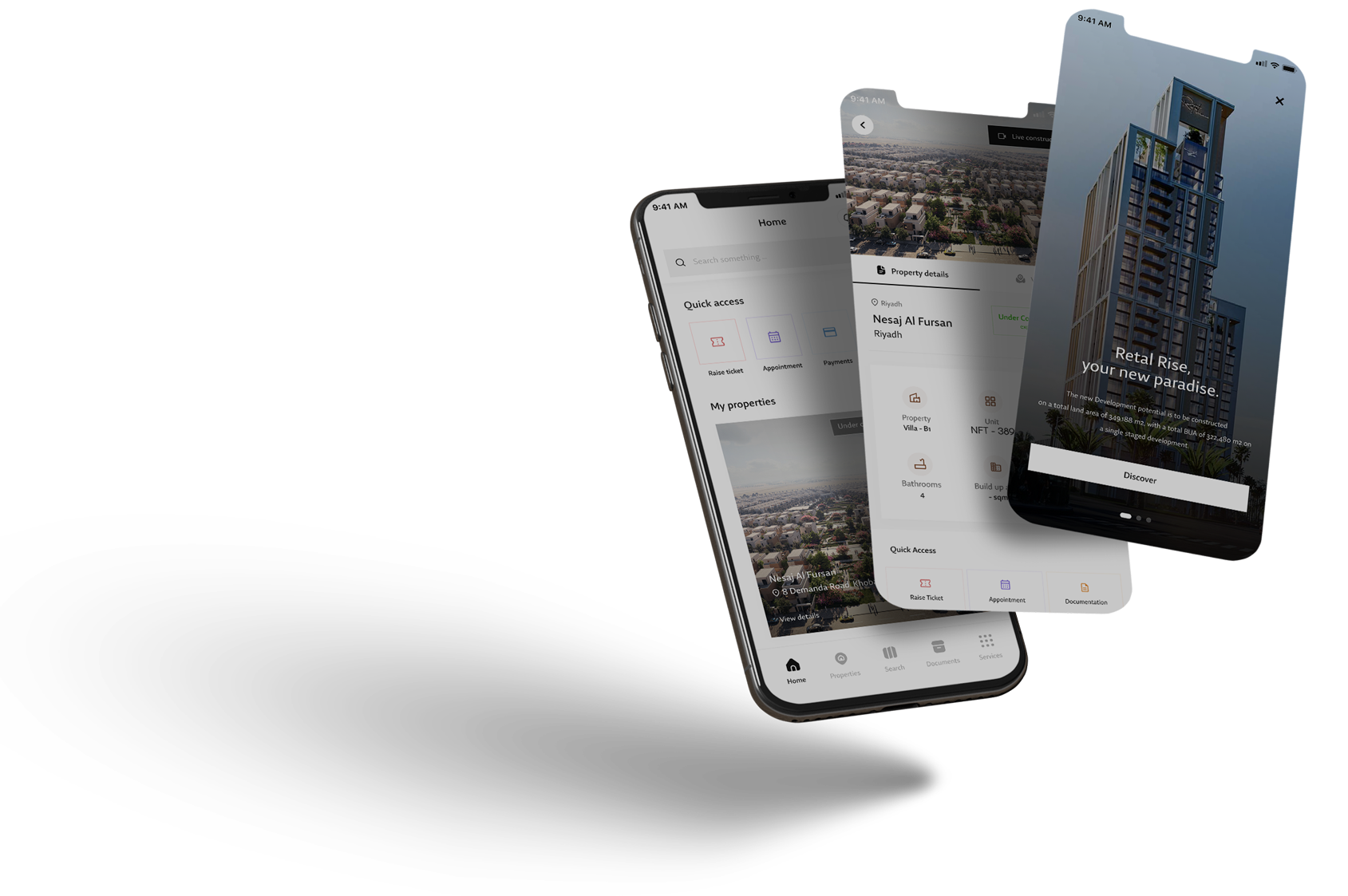October 2, 2024
Menu
Close
ABOUT RETAL
In support of the Kingdom’s Vision 2030, we have taken steps to make us the ideal future destination for living, working and tourism. Retal Group unified the real estate value chain through its business in acquisition, construction, and strategic joint ventures to provide unique products with high quality.
Retal represents the quintessence of craftsmanshipby embracing the virtues of urbanism. The total value of our completed, ongoing and upcoming projects exceeds 9.5 billion Saudi riyals and the upcoming 9.5 billion Saudi riyals. With more than 7,000 units under construction, and 6,000 completed units.
In support of the Kingdom’s Vision 2030, we have taken steps to make us the ideal future destination for living, working and tourism.
We ensure our developments are in coherence strategic vision to maximize
shareholders wealth and contribute to the generation’s economy.

Handle your home wherever and whenever you want with our new Retal Customer App, and discover our exclusive news, properties and services.
Get the app now by scanning our QR Code!

افضل مطور عقاري في المملكة بادارة سعودية شابة بقيادة المهندس عبدالله البريكان وفريقه الرائع

من الشركات اللي اشتغلت فيها بداية حياتي المهنية كان لهم فضل كبير في تطويري .. بيئتهم جاذبة ولكن هذا حال الدنيا لقيت فرصة أفضل والله يرزق الجميع 🙏🏻

انصح فيه

شركة مميزة في مجال التطوير العقاري
مشاريعها وتصاميمها جميلة

نشكر الا خوان علي التاعمل

شركة متميزه ولديهم طاقم عمل مميز

شركة كبرى وواجهة جميلة

شركة متميزة ومرتبة جدا كل الشكر للجميع

ما انسى اليوم الجميل اللي سويت فيه مقابله وتوظفت في نساج والان وادعتهم قبل اسبوع والحمدلله

الموظفين قمه في الذوق والاحترام وحسن الاستقبال

مقابلة ممتازة جدا لابعد الحدود واخص بالذكر موظفي قسم الاستقبال / الاستاذ نزار . والاستاذة / حصة ،.حيث انهم على قدر عالى من الاخلاق الرفيعه ومرونتهم فى استقبال العملاء والموردين اشكرهم لابعد الحدود واتمنى ان يكون جميع منسوبي الشركه على نفس مستواهم المهنى والاخلاقى .

هو فعلاً للأعمال فريق رائع

تعامل راقي جدا

مبنى فخم وتعامل راقي

شركة رائدة في العمران

مبنى فخم وموقع جيد .

ريتال هي إحدى شركات التطوير الرائدة في المملكة العربية السعودية. رأيي، سيكونون الأفضل في المملكة العربية السعودية قريبًا. حظ سعيد

من افضل المطورين بالمنطقة الشرقية
انصح بالتعامل معهم 👍

شركة متميزة، همها ارضاء العميل

شركة تطوير عقاري متميزة

أحد المستثمرين العقاريين المعروفين في المنطقة، ويشارك حاليًا في مشروع إسكان الدمام الجديد الذي سيتم تنفيذه قريبًا جدًا.
